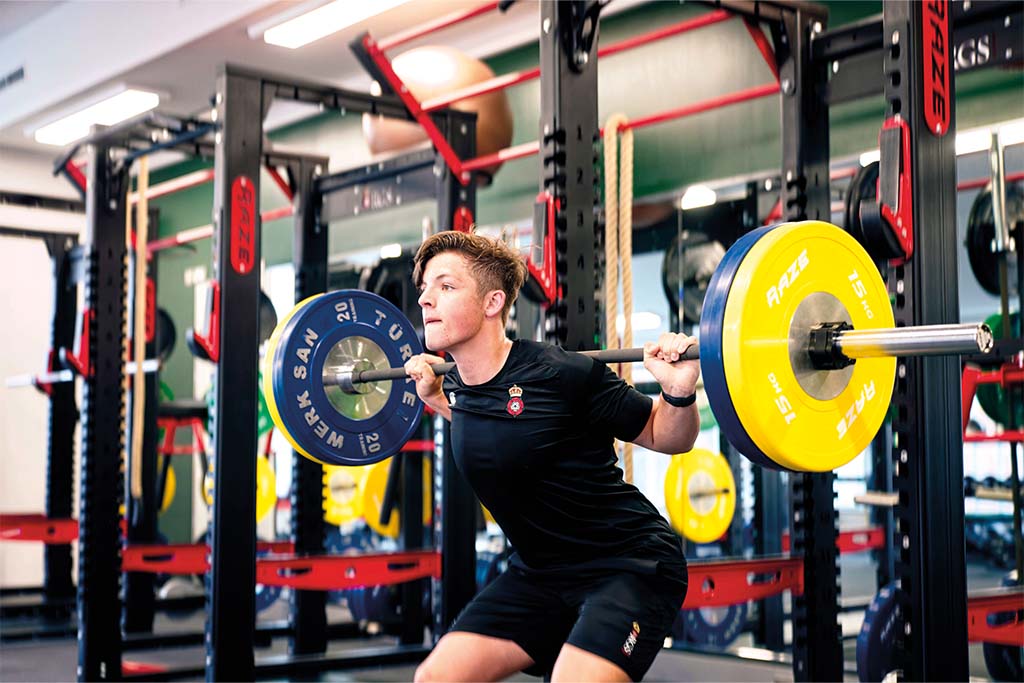From Boys to Men
By
3 years ago

Earlier male generations avoided their GPs, Dr Jeff Foster tells Victoria Lambert – it’s time for a sea change in attitude, starting with teenagers and young adults

We tend to assume men don’t take good care of their health and the statistics bear that out: women aged between 20 and 40 are twice as likely to visit a GP, men typically visit a pharmacy four times a year while the average for women is 18 times per year, and Danish research suggests that there is a link between men’s lower use of primary care and their higher rate of hospital service.
So, when does that attitude start?
Dr Jeff Foster, a GP with an interest in men’s health and author of Man Alive, The Health Problems Men Face and How to Fix Them (Little Brown Book Group, £11.99), believes there is a societal issue at play – which goes far beyond that ‘well known feeling of immortality in youth,’ as he puts it.
‘Men, young men in particular,’ says Dr Foster, ‘are in a difficult position. Not to say that it was better, but in the mid-20th century the stereotyped role of men going out to earn, being responsible for the finance and household, and women looking after the home and family, meant that, while morally dubious, men had a clearer identity.’
He adds: ‘Since the start of the 21st century and over the past few years, we have encouraged much more equality between the sexes, and also encouraged men to change the way they think about themselves.
‘We now tell men to talk about their feelings, that they should be open and share and it’s “OK to cry”. But the background position on where men sit in the world has not changed that much.’

So, when they get hurt, he says, ‘we still tell boys “Don’t cry like a girl” and to “man up”! As such, despite our efforts, there is still a deep-seated mindset that has not changed in boys and young men that says you need to be tough and not show weakness.’
That means it’s more important to get the right health messages across to them. ‘We are becoming more aware that many illnesses start impacting on the body at an early age,’ Dr Foster says. ‘For example, cardiovascular disease from high cholesterol, obesity and high blood pressure can start damaging our arteries in our 20s.’
‘Poor mental health can be really severe in men in their teens and 20s, with higher rates of suicide in men than women, even though diagnosed depression is greater in women.’ It must also be stressed that if you feel unwell either physically or mentally, he says, ‘that it is important to ask for help either from a doctor, family member or friend.’
As it is, when teen or young adult boys get to primary care, they present with relatively trivial issues: coughs, colds, eczema,
and acne.

‘We rarely see mental health as this is something we do not address well,’ he says, ‘but we do see concerns over sexual function a lot and – particularly with erectile dysfunction or low libido – some of this is medical, but a lot is to do with lifestyle, sexual identity and confidence.’
Equally concerning, he says, is GPs reporting about boys and young men worrying about having breast tissue; ‘Body image… too fat, too thin or not the right shape. This is a confidence thing and about feeling comfortable and being aware of their own body.’
Young men, he says have to ‘transition through the ignorant confidence of youth through the uncertainty of our teens as they become more self-aware, and question how they fit in the world. Understanding it is a normal process but it can be very hard, and learning to feel comfortable with who they are can be very challenging – it takes time, patience, self-reflection, and for some men, many years.’
Dr Jeff Foster is Medical Director H3Health (h3health.co.uk). Man Alive, The Health Problems Men Face and How to Fix Them (Little Brown Book Group, £11.99)
DR FOSTER’S TOP TIPS
Start Now
Don’t wait until you are 40 to look after your health. Time goes quickly and in a blink of an eye, the cocky, immortal 20-year-old who can eat anything and never put on weight, is an obese, tired and testosterone-deficient 40-year-old man. By getting into good habits in your 20s, it can set you up for a better lifetime of health and reduce the risk of illness when you are older.
Parents
Two areas where Dr Foster says you should encourage your teen boy to be more open are mental health and sexual function. ‘Tell them they don’t necessarily need to speak to a doctor if they feel they are struggling mentally,’ he reassures, ‘but speak to someone. It can make all the difference in preventing a downwards spiral. And physical health comes into that: a good diet, plenty of exercise, quality sleep.’
Its equally vital to broach concerns around sexual function. ‘There is a massive problem with watching porn among younger men,’ he says, ‘and hence the expectation of what they think they should be able to achieve through sex.’ Keep talking and be honest, he advises.
READ MORE FROM SPRING SUMMER 2022
H&W: Move | H&W: Eat



